The Man Who Put Macau on the Poker Map: Elton Tsang’s Net Worth, 3 Biggest Wins, and Legacy
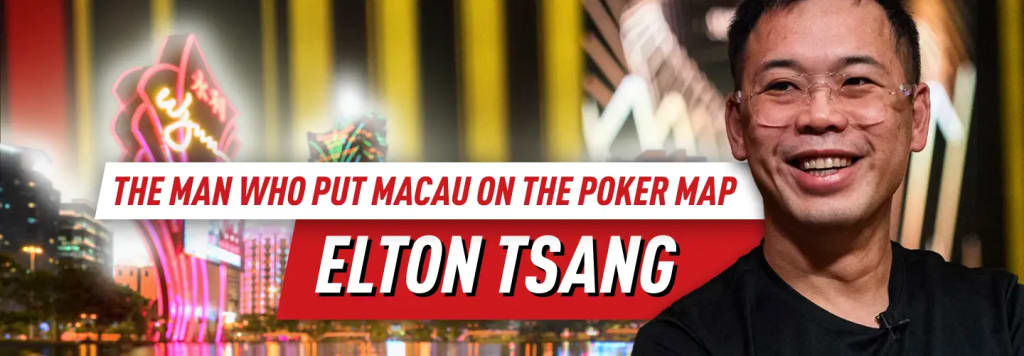
You can tell a lot about a man by the size of the stakes he plays, or in Elton Tsang’s case, the size of the void he quietly filled. If you have already heard his name, it probably came attached to an absurd number: €11 million, to be exact. That’s how much he won at the 2016 One Drop Extravaganza in Monte-Carlo. But here’s the thing: that moment, the one that made headlines and forced people to ask “Wait, who is Elton Tsang?”, it’s not even the most interesting part.
Because Tsang didn’t just win big, he built big. He didn’t just take a seat at the poker table; he created the table, invited the world’s best, and let the chips fall where they may. This is not just your regular poker hero story. It is a story about transformation, a story about control, and a story about a man who turned a scattered pastime into a pan-Asian cultural and economic machine. And he did it the same way he plays cards: quietly, patiently, and with surgical precision.
The Vancouver Kid Who Could Read the Room
Elton Tsang is not the heir of some casino dynasty or the beneficiary of flashy poker mentors. His roots are far more grounded. Raised in Vancouver, Canada, in a traditional Chinese family, he grew up in an environment where math was not only encouraged but also expected. Quiet discipline was not optional; it was the rhythm of the entire household. Nothing in that upbringing pointed to a future in poker. Not even close.
But poker, like life, has a way of finding the observant.
In 2001, Tsang stumbled into the game the way many did: college downtime, glowing computer screens, late-night curiosity. It was not glamorous. It was not even too profitable. It was your average $2/$4 Limit Hold’em player on PartyPoker. Just another young guy clicking away. But where others saw distraction, Elton Tsang saw code. Movement. Human behavior in disguise.
He was not drawn in by bluffs, flashy moves, or any of that bravado. He was drawn in by patterns, the little stutters of hesitation, the betting frequencies, the mistakes players did not know they were making. He quickly realized the game was less about luck than it was about silence: what people do not say, do not show, and do not mean to reveal. That became his home turf.
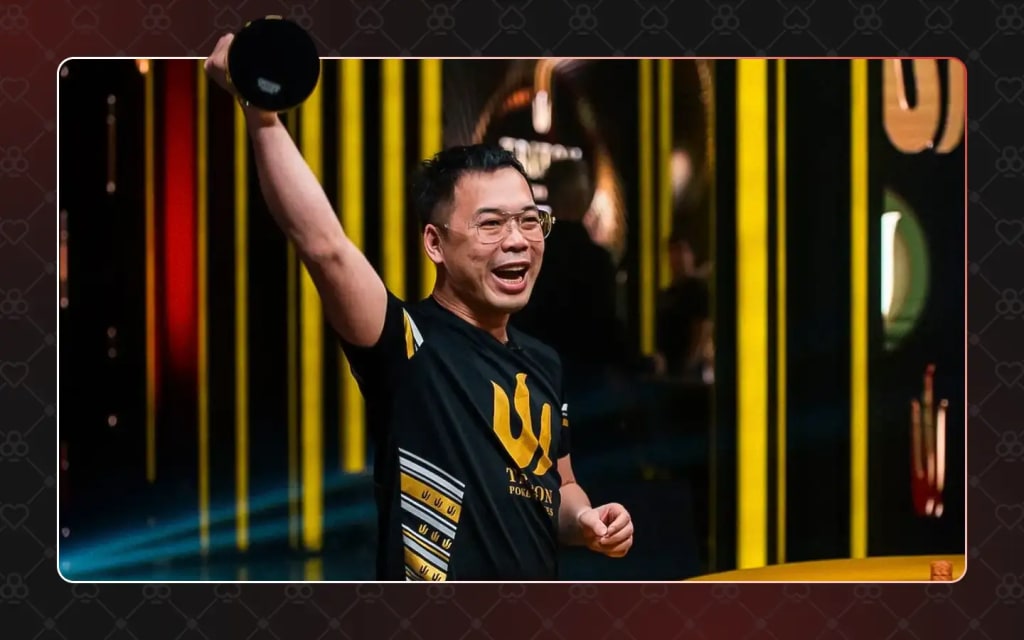
This was before GTO, before solvers, and before YouTube breakdowns. At that time, you learned mainly by losing. By folding too much. By calling it too light. It was trial-and-error as religion. But Tsang had something many did not: he could keep losing and keep learning. His ego could take it; it was not fragile. He trusted the process.
He kept his head down and his eyes open. While others bragged in chat boxes or forum threads, he treated every hand like a lesson in anthropology. He was studying: not the game, but the people inside it.
And then, inevitably, the screen was no longer enough. Elton Tsang ventured into live games: first in Vancouver’s under-the-radar cash game scene, then later in Hong Kong’s even murkier circles. No corporate sponsors. No house rules. Just tension, cash, and a mix of sharks and schemers. These games were not polished, but they were real. They taught him what software never could: that no matter how good your range is, people will always tell on themselves.
The Poker Pioneer Who Saw Asia Before Asia Saw Poker
Here is where most bios would fast-forward to the One Drop win. However, that would miss the point.
What makes Elton Tsang pivotal is not his earnings, but his vision. When he returned to Hong Kong in the mid-2000s, Macau was just starting to emerge as the Las Vegas of the Asian continent. Yes, there were already some massive casinos, but poker? Barely a whisper. No tournaments. No marketing. No player pool. It was not that people were not interested; it was that nobody had shown them yet how the game could live there.
So Tsang became the architect.
Through relentless networking and persuasive persistence, he helped launch the first live Texas Hold’em tournament in Macau, hosted at the Grand Waldo Casino. It was modest. The turnout was uncertain. But the impact? It was massive. That event laid the foundation for what would later become the Asia Pacific Poker Tour (APPT), a genuine poker revolution for the region that would bring thousands of players across borders and continents.
However, let us pause for a moment: this was not just event planning. This was also a cultural translation.
At the time, Asian gamblers gravitated toward games of chance: baccarat, sic bo, roulette, and so on. Fast-paced, luck-based games that were already deeply ingrained in the region’s casino environment. But poker? It was too slow. Too foreign. Too mental. People in Asia viewed poker as a Western phenomenon, a niche hobby for math enthusiasts and cowboys.
Tsang knew better. He saw poker as something deeper: a language of logic and risk tolerance. And he knew if he could make the rhythm of the game make sense to an Eastern audience, the game would catch on.
So he brought in Western players. Not to dominate, but to legitimize. He facilitated partnerships between poker brands and casinos. He organized, advised, and connected. He gave the game roots. And slowly, it worked.
Today, Macau, Manila, and Jeju are not just afterthoughts; they are legit poker destinations, global stops on the high-stakes circuit. And Tsang? He is the guy who lit the match.
Let us not forget the economic impact. Poker tables brought international money to local dealers, tournament crews, and hospitality groups. Whole side industries flourished. Hotels restructured around poker calendars. Local talent got hired. Poker did not just take; it gave. And Tsang understood this ecosystem before anyone else in the room did.
The Ghost in the High-Stakes Room
There is something disarming about Tsang’s style: he says almost nothing, and still, you remember everything.
His natural habitat is not the stage. It is the whisper. The high-stakes private game in some penthouse suite in Macau or Hong Kong, where the blinds would terrify most bankrolls. Where legends like Tom Dwan, Phil Ivey, and Gus Hansen casually drop millions over the course of a weekend.
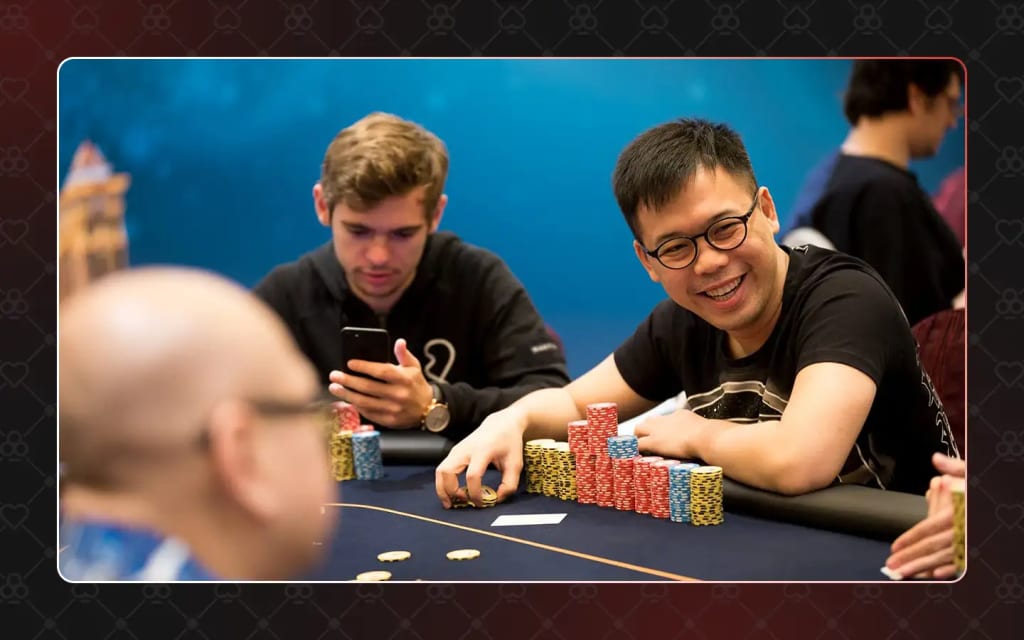
There is a well-circulated, but never actually confirmed story: Tsang dropped HKD$60 million in a 24-hour marathon session. That’s over $7.5 million USD. Most players wouldn’t recover financially or psychologically. But Tsang? He rebought for HKD$20 million, settled in, and clawed his way back, earning an additional HKD$60 million in profit. His net win: a cool HKD$120 million.
But this wasn’t a comeback story. It was a lesson in control.
Because Tsang doesn’t win by bullying. He wins by disappearing. He blends into the rhythm of the game so thoroughly that people lose track of what he’s doing. Until it’s too late. He doesn’t trash-talk after a big bluff. He doesn’t flex. He simply adjusts, absorbs, and recalculates. He’s unreadable, not because he’s mysterious, but because he reflects you.
Sit across from him, and you’re not trying to read him. You’re trying to figure out why you’re second-guessing your own decisions. That’s power.
The Big Win: One For One Drop Extravaganza Monte Carlo
Let’s revisit that €11,111,111 One Drop victory in Monte Carlo. Not for the cash, but for the message it sent.
It was the kind of tournament that fuses excess and excellence: tuxedoed billionaires, poker’s finest minds, and a €1,000,000 buy-in that made breathing feel expensive.
Tsang didn’t just show up. He dismantled the field. Calculated, methodical, unnervingly calm. His decisions weren’t flashy, but they were flawless. There were no Hail Mary hero calls. No showboating. Just cold, deliberate pressure.
And when he won? No roar. No slow-motion camera kisses. Just a brief smile and the same posture he had when he sat down.
Because that’s Tsang. The moment doesn’t define him. The process does.
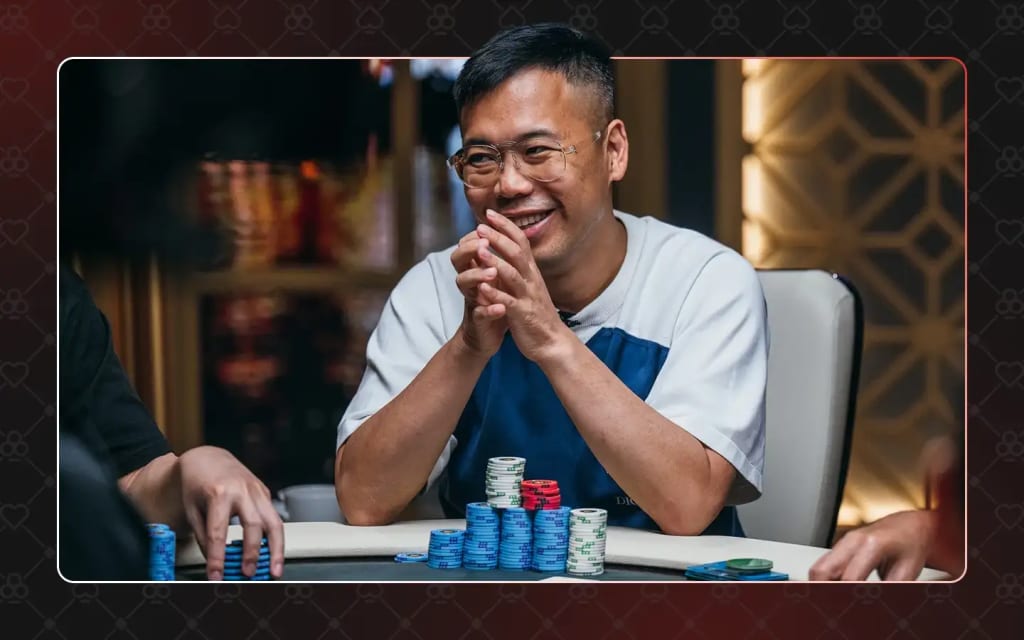
What followed was perhaps more meaningful than the check: a shift in how the poker world viewed power. Until then, charisma was currency. But Tsang’s victory changed that. Suddenly, the quiet players, the ones who didn’t tweet, didn’t stream, didn’t posture, were being watched more closely.
He proved that stillness can dominate.
The Leon Tsoukernik Controversy
In 2017, after his big win in Monte-Carlo, Tsang entered a legal dispute with Czech casino magnate Leon Tsoukernik, alleging an unpaid €3 million poker debt from a private game in Barcelona.
Tsoukernik disputed the terms. The courts got involved. The poker world watched.
Ultimately, the case was dismissed on procedural grounds. But the judgment in the court of public opinion? Firmly in Tsang’s favor. Big names like Daniel Negreanu voiced their support.
Why? Because Tsang didn’t leak. Didn’t lash out. He handled it with the same unflinching resolve he brings to every game. He let silence do the heavy lifting.
The Comeback That Never Needed to Be
Eight years later, in 2024, at Triton Jeju , Elton Tsang reminded everyone that time had changed, but he hadn’t lost a step.
The $150,000 Eight-Max No-Limit Hold’em event wasn’t just competitive, it was cutthroat. Crypto titans. Hedge fund hotshots. Elite grinders. Everyone had something to prove.
And yet, there was Tsang. Calm. Hands folded. Scanning the table like he was choosing a wine, not about to bluff a millionaire off a pot.
He banked $4.21 million, with minimal fuss and maximum efficiency. Again.
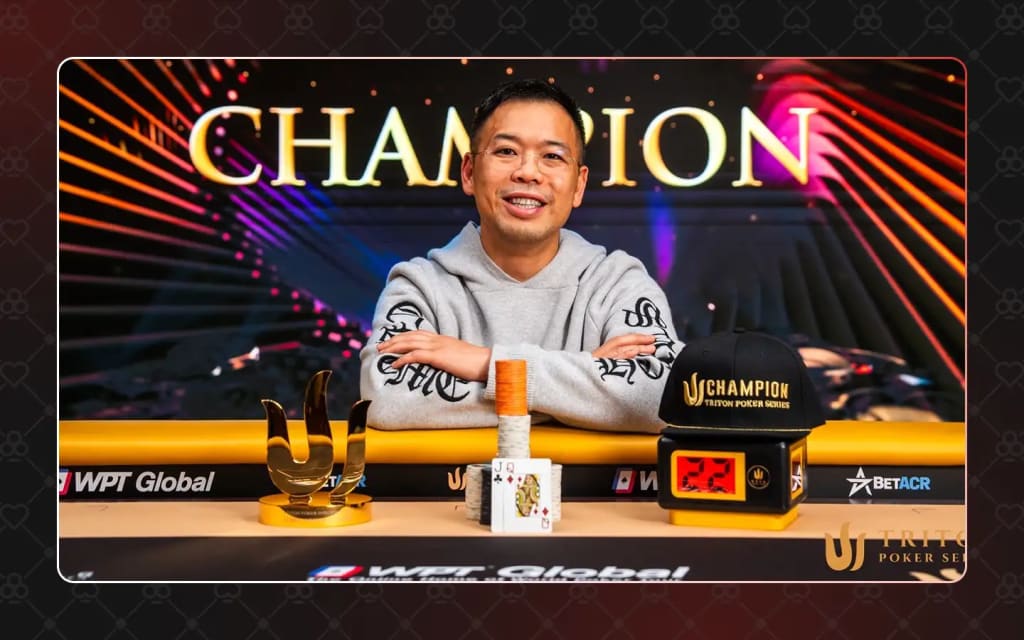
Because for him, poker isn’t about momentum. It’s about timing. Not speed, but tempo. And very few people in the world understand tempo the way he does.
The Empire Behind the Curtain
Poker may be his stage, but business is where Tsang builds his long game. Looking at his poker winnings won’t give you a full picture of Elton Tsang’s net worth.
He’s invested in tech startups, digital logistics, and travel companies. But not the buzzy, venture-capitalist PR darlings. He prefers the unglamorous plays, the infrastructure that scales quietly.
In short, he likes systems. Scalable, predictable, invisible systems.
That philosophy also extends to his philanthropy. He supports Hong Kong-based charities such as Po Leung Kuk and Mother’s Choice, both of which focus on children and families. No speeches. No selfies. Just silent consistency.
Ask those close to him, and they’ll tell you: he’s not chasing headlines. He’s building a legacy.
Elton Tsang poker presence isn’t famous because he talks loudly. He’s famous because he plays loudly, without ever raising his voice.
He globalized a game without trying to globalize himself. He expanded poker’s cultural reach while shrinking his own spotlight. And maybe that’s the ultimate move: to dominate a scene and still vanish into it.
He didn’t just change poker. He changed where it happens. How it’s played. And why it matters.
And he’s not done.
Live poker legends may have entered the world of poker in different ways, but you can follow their footsteps by honing your skills and aiming for big wins. Simply register using our recommended bonus code for the best poker rooms, featuring the best promo codes, such as QQPoker , ACR , or Stake Poker . Remember, learning from the pros always makes your play better.





































